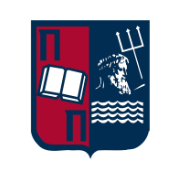Quantum Computing |
|
|---|---|
| Professors | Nikitas-Marinos Sgouros |
| Course category | OPT/CIS |
| Course ID | DS-412 |
| Credits | 5 |
| Lecture hours | 3 hours |
| Lab hours | 2 hours |
| Digital resources | View on Aristarchus (Open e-Class) |
Learning Outcomes
The course seeks to familiarize students with the basic principles governing the use of quantum pheonomena for solving computational problems. It focuses on the presentation of the mathematical background that is required to model quantum phenomena related to computational processes and to the analysis of quantum operations and algorithms capable of being executed by quantum computers. Furthermore, the course analyzes the relation between classical and quantum computations and provides a survey of the many open problems that exist in the quantum computing field. At a more applied level the course describes modern programming environments for quantum computing.
Course Contents
- Mathematical Background
- Elements of Linear Algebra, Elements of Complex Analysis
- Elements of Quantum Mechanics
- Quantum mechanical behavior in electrons and photons (spin, polarization) – Quantum Mechanical Experiments
- Qubits and their Attributes
- Representation, Superposition, Tensor Product, Entanglement, Measurement, Bell’s Inequality
- Classical Logic, Gates and Circuits
- Quantum Gates and Circuits
- Quantum Algorithms
- Deutsch-Josza, Simon, Grover, QFT, Shor
- Programming Environments for Quantum Computing
Recommended Readings
- Nielsen, M. A., Chuang, I. L., Quantum Computation and Quantum Information, Cambridge University Press, 2010.
- Instructor’s Notes

